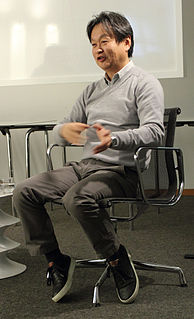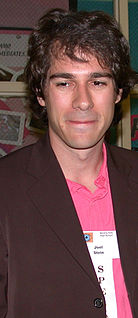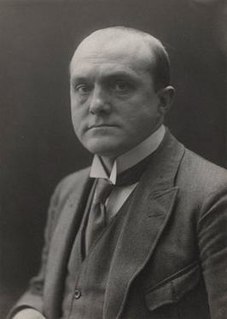A Quote by Marcel Wanders
Whether or not you like an object, it's the product of an individual person making decisions about things. That's what makes it interesting.
Quote Topics
Related Quotes
Any object not interesting in itself may become interesting through becoming associated with an object in which an interest already exists. The two associated objects grow, as it were, together; the interesting portion sheds its quality over the whole; and thus things not interesting in their own right borrow an interest which becomes as real and as strong as that of any natively interesting thing.
You don't really want an army of people making individual decisions. And I don't think I completely understood that until people gave me examples of what happens when your army takes over your government and it's like, "Oh, yeah, I guess you can't really have people make individual moral decisions."
The individual representation of the object, treated sympathetically or antipathetically, is highly necessary and is an enrichment to the world in form. The elimination of the human relationship causes the vacuum which makes all of us suffer in various degrees - an individual alteration of the details of the object represented is necessary in order to display on the canvas the whole physicals reality.
If we decide rightly what to do, or use a correct procedure for making such decisions, that has to be because the decisions or the procedure rest on good reasons, and these reasons consist in the apprehension of truths about what we ought to do. Because these truths must constitute reasons for our decisions, and because in the rational order, reasons must always precede the decisions based on them, the truth conditions of claims about what we ought to cannot be reduced to, or constructed out of, decisions about what to do, or procedures for making such decisions.
The most interesting character to me is someone who is stuck in the no man's land between Belief and Unbelief, Faith and Faithlessness. I'm capitalizing like a German, but it doesn't matter whether it's faith in a person or in God, or belief in science or whatever, it's the desperate in-between state that makes for interesting dramatic tension.
Collectivism takes on many guises and seldom uses its own real name. Words like 'community' and 'social' soothe us into thinking that collectivist decision-making is somehow higher and nobler than individual or 'selfish' decision-making. But the cold fact is that communities do not make decisions. Individuals who claim to speak for the community impose their decisions on us all.
If you want to write about a person who isn't nice, people say, "This is a bad book. It's about somebody I couldn't stand." But that's not the point. You don't have to like a character to like a book. Most of the time, people would misjudge and say, "I didn't like the book." No, you didn't like the character. That doesn't make it any less interesting of a book. In fact, to me, it makes it more interesting.








































